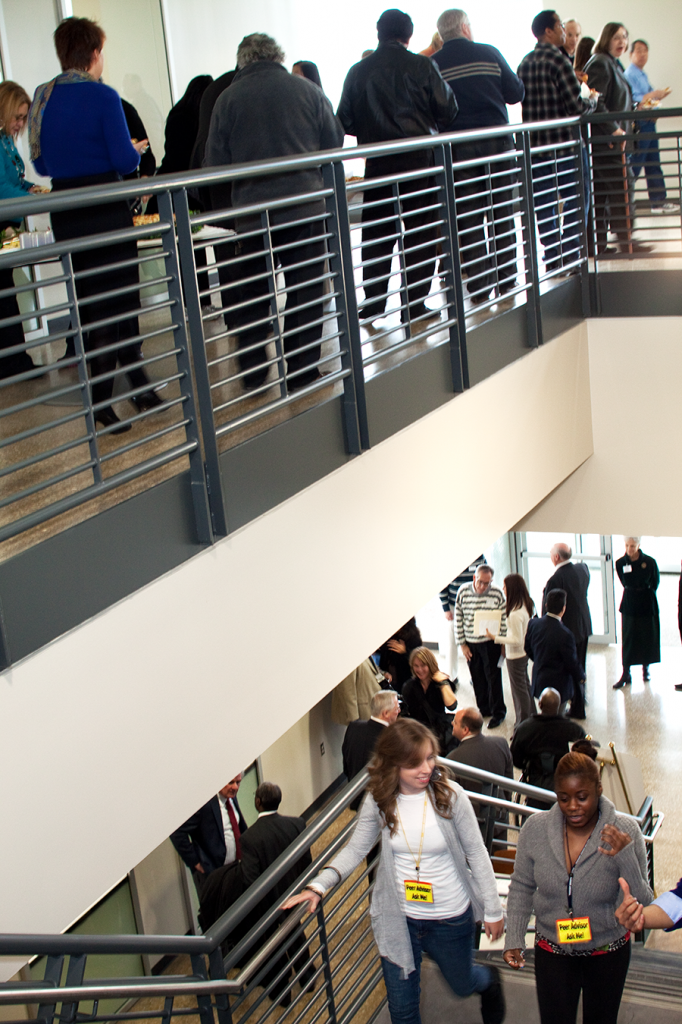By Amy Estrada/reporter
According to a recent Wall Street Journal article, the contemporary society of young adults is defined by its “look-at-me” culture.
Those born between 1982 and 2002 have been named “Generation Me,” according to an article in The New York Times Magazine by Judith Warner, and both make a connection between this heavy wave of narcissism and social media.
“Users’ actions (on Facebook), whether they realize it or not, lean more toward personal branding or company branding rather than simple online social activity and entertainment,” said Colin Alsheimer in “The Dangers of Facebook Narcissism.”
Alsheimer said people will have friends on Facebook that they barely know, and they will make sure the pictures posted on their page are good pictures of themselves. Sound familiar?
NE student Jessica Chavez agrees that today’s young adults can be narcissistic and addicted to social media.
“About 60 percent of the time, I think about just me,” she said.
Chavez said if she were asked to go 24 hours without her phone or social media, it would be hard for her because it’s her lifeline. It’s also her only connection to everyone she knows.
“I fell asleep with it in my hand, texting last night,” she said.
NE student Tim Flow is the complete opposite. He said he would be fine leaving his phone and social media out of his life for 24 hours.
“My day would be normal,” he said. “I would come home from work and do stuff outside like work on my truck.”
Fifty TCC students were surveyed about the “Generation Me” phenomenon and whether social networking has taken over in social settings and changed people’s behavior.
While answers were mixed, the signs pointed to yes.
“Today’s generation is in a constant state of multi-tasking,” NW psychology instructor Jerry Green said.
Green said students are texting while they eat, sit in class or drive down the road.
“Human nature is the same as it’s always been,” he said. “We are all born very selfish but eventually learn to put our needs on hold. It is taking this generation longer to grow up than ever before.”
Most of the students surveyed agreed that “Generation Me” is very fitting for people they know in that age group.
“It seems the attitude of me, me, me has become the social norm,” NE student Christina Hamilton said. “My grandparents used to sit around and have meaningful talks. Today’s generation revolves around quick and fast talk with little to no commitment.”
When students were asked if they were addicted to social networking, most answered “no” because it’s not something they have to do everyday, and face-to-face interaction was much more important to some.
One student who asked to remain anonymous said he was addicted to social networking because he has “a longing to get to it” all of the time.
Another student said life would be boring if social networking were not a part of daily life because she would not know the new updates.
“I choose to live without social media,” one respondent said. “With that being said, life is natural, original, protected and in the moment.”
Flow said today’s generation has too much pride, and it is more of a selfish pride.
“People are proud of being where they are instead of where they want to be,” he said.
Newsweek writer Raina Kelley in a 2009 article put it a different way.
“Treating the whole world as if it works for you doesn’t suggest you’re special,” she wrote. ”It means you’re an ass.”



























